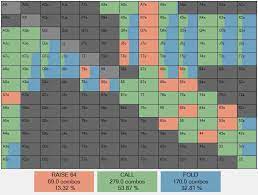I check raise when I have a strong hand and it gets them to fold.
Check raising is one of the most common poker plays and yet one of the most underutilized moves by many players. Clearly, it works for the strongest ten percent of hands, the bureau laugh at the rest of us who practice it. Phil Helmuth, in his book Play Poker Like the Pros recommends giving a raise of three times the big blind or hundred dollars in order to steal the betting of weak or unsuspecting players.
It is an easy mistake to make when you are playing and then you forget about it and go on playing. Phil calls it the “insurance Line,” thePlace Bet, when you play in hopes that the guy next to you holds AA or KK. This happens fairly often. Other players forget about the check raise and plenty of aggressive players, usually players who don’t want to push their chips on the table, tend to take it for granted.
The result is, the player who did the check raise, hits his hand and is out of chips. The check raise was nothing more than a trap, maybe set by a maniac but failed to get any money from his opponent. Naturally, you will want to exploit this hole and the question is… should you call yourself out?
At some point, when you make a substantial bet, you will probably be up against players who want to protect their hand, in this case you don’t want to scare them off. Maybe a Queen for a pair of Jacks is worth it, though the idea is to take less than they are worth. After all, you may not catch another one. Many players protect their hands when they have them and this results in lost chips.
Unless you have a monster, I recommend playing it safe and checking when you have a good hand, there are two reasons for this. The first is that no one knows how much you actually have, the second is that you will probably draw out against them when you have a monster. They won’t know if you slow it down to see if you can get them to fold. Therefore, even if you appears weak, in some cases drawing may not be the best play.
Playing monster hands and slow played draws are both an art and a skill. The more you practice drawing out against your opponents the better you will become. The better you become, the more you will win.
When you have a monster you want to make them pay for it. If you make a quick call that there is now nothing you can do about the hand, your opponent will most likely hang in there and not leak any chips. However, if you do not raise, your opponent has no choice but to bet and if they have some chips remaining, they are going to bet.
A hand where you do not have to make a raise is the most powerful of all. Unlike With Bolagila, you do not have a choice of action in the middle of the hand. You are simply committing chips to the pot. The pot odds are that you will win the hand, therefore, you do not need to make a big raise. You can call a bet as low as the amount of a small bet, as long as you have enough chips to call. For example, you have 10BBs. It is late in the tournament and the blinds are 150-300. You have suited connectors and bosses and decide to call a standard raise of 300. The system tells you to make a pot sized bet and scare off players, therefore, you should bet about 1/3 of the pot size to get some respect. If you win the hand, great. Now, if you lose, well, you have lost a small bet, not a big bet. And, you can afford to fold now because you have plenty of chips.
The next time you have ace or king, raise before the flop. Then, make a bet after the flop. If you get resistance, hang in there. If you don’t you can go all-in. If you hit a pair, great, if not, you have lost a small bet, not a big bet. And, you can afford to do a little stealing as long as you don’t have too many chips committed to the pot.
When you have a monster, I fold.
Late MTT Strategy = Push the Pace in the later stages of the tournament. Why? Great. You have the chip lead. Now it’s time to play for the gold. You are not looking to just make the money, but to win the tournament. You are not going to pushing chips and risking a double up as part of the risk in the tournament. Of course, risk is still risk. But you want to put aexeption of a long tournament into your opponents.
